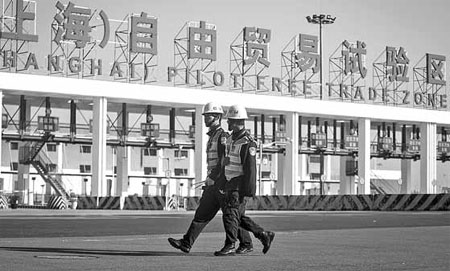FTZ inspection mechanism on the drawing board
Updated: 2014-01-23 08:22
By Wei Tian in Shanghai (China Daily USA)
|
||||||||
System regarding antitrust and safety probes to strengthen supervision of foreign investments
Authorities are working on a mechanism for antitrust and safety probes in the China (Shanghai) Pilot Free Trade Zone, a senior government official for the zone said Tuesday.
Such a move is meant to strengthen supervision of foreign investments in an area that grants quite a bit of freedom to investors at the entry stage, experts said.
Ai Baojun, vice-mayor of Shanghai and head of the FTZ's management committee, told local legislators that the mechanism will be ready by the end of the first quarter this year. "We have reached a basic agreement with relative ministries it will be an operating system built on existing rules," he said.
China's antitrust inspections of foreign investors are mainly handled by the Ministry of Commerce, and safety inspections are conducted by a joint conference led by the Ministry of Commerce and the National Development and Reform Commission.
Adhering to international standards, antitrust inspections are a transparent process, but safety inspection will be less so, according to Ai.
The FTZ's inspection mechanism will gather information from multiple sources to achieve mutual corroboration, and will solicit external expertise from accountants and lawyers, he said.
Yang Ning, an antitrust lawyer with HaoLiWen Partners, a Shanghai-based law firm, said the inspection mechanism for the FTZ would not be that different from existing rules.
However, as the list of sectors requiring advance approval is expected to diminish over time, the inspection mechanism will have to step in to check whether new investment falls into a category involving antitrust or safety issues.
"Overall, FTZ authorities may adopt a stricter standard in antitrust inspection, aiming to increase in-progress supervision as it has lowered the threshold for entry," Yang said.
He said many circumstances, such as tender offers and joint ventures, may qualify for antitrust inspections, and investment in shipping, energy, agriculture and machinery sectors may involve safety issues. Therefore, it's best for investors to file declarations in advance, not only to the Ministry of Commerce but the safety inspection joint conference as well, Yang said.
So far, no company has filed a declaration for safety inspection on its own initiative, he said.
Since China published its Antitrust Law in 2008, the Ministry of Commerce has initiated some 700 antitrust probes into mergers and acquisitions cases, of which more than half involved at least one foreign party, Yang said.
Most of the cases eventually received a green light, with about 20 passing with additional conditions, according to Ren Li, another antitrust lawyer with Yang's firm. The only one that was rejected was Coca-Cola Co's failed bid to take over China Huiyuan Juice Group Ltd in 2009.
Though lacking official data, Ren said no more than 10 probes into foreign investment that arose out of safety concerns were initiated since the joint conference was set up in 2011.
"In general, China adopts a very tolerant attitude toward foreign investors," he said.
"A vast country like China must take into consideration national safety issues when advancing free trade zone reform," said Yu Shicheng, a professor with Shanghai Maritime University, adding, "it is the same in the United States".
But for such an inspection mechanism to be put into operation, the 28.78-square-kilometer FTZ may have to be expanded; otherwise, opportunities for M&A deals could be limited.
Local newspaper Xinmin Evening News has reported that the FTZ management committee will move to the Lingang area of southeast Shanghai, which has been mentioned as a top choice for the expansion of the FTZ.
So far, however, the enthusiasm of foreign investors seems to be overshadowed by that of their domestic counterparts due to a lack of operational rules and speculative behaviors that have pushed up office rents.
Chen Jianan, a professor of economics at Fudan University, has suggested that the FTZ should expel the speculative businesses without actual operations in order to make room for manufacturers.
weitian@chinadaily.com.cn
|
Customs officers walk near a checkpoint at the China (Shanghai) Pilot Free Trade Zone. Provided to China Daily |
(China Daily USA 01/23/2014 page15)

 US anti-abortion rallies march for life
US anti-abortion rallies march for life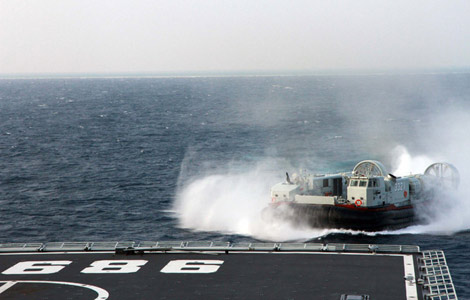
 PLA navy drills in South China Sea
PLA navy drills in South China Sea
 Catnaps help travelers keep going
Catnaps help travelers keep going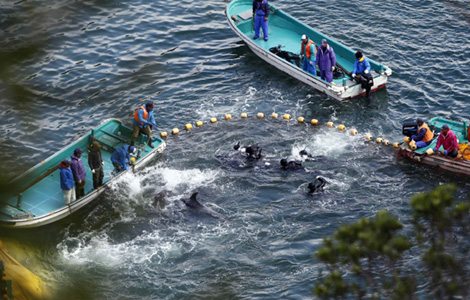
 Japan seeks US understanding about dolphin hunt
Japan seeks US understanding about dolphin hunt
 Snow storm hits US East Coast
Snow storm hits US East Coast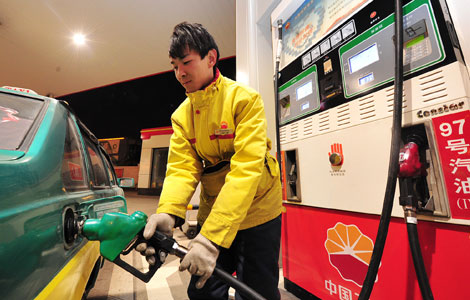
 China begins receiving oil from Russia
China begins receiving oil from Russia
 Underwater photos exhibited in Beijing
Underwater photos exhibited in Beijing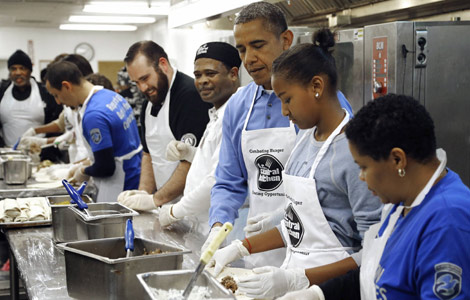
 Obama honors Dr King with volunteer work
Obama honors Dr King with volunteer work
Most Viewed
Editor's Picks

|

|

|

|

|

|
Today's Top News
Lawsuit blames plane’s warning systems for crash
Argentine president ends long public silence
Report shows big rise in Chinese overseas
Export adds to air blight
China approves 12 more free trade zones
Li calls for cooperative global economic system
Boeing sales soar to new heights
China to keep up with transgenics
US Weekly

|

|
